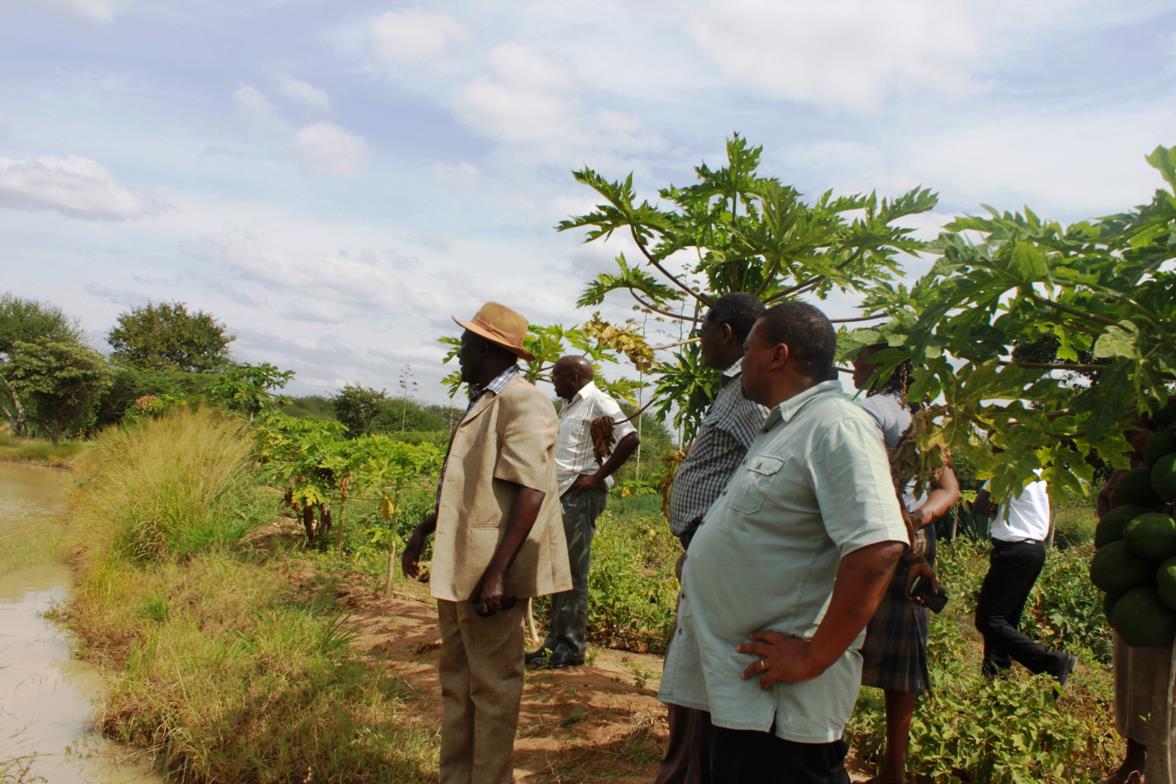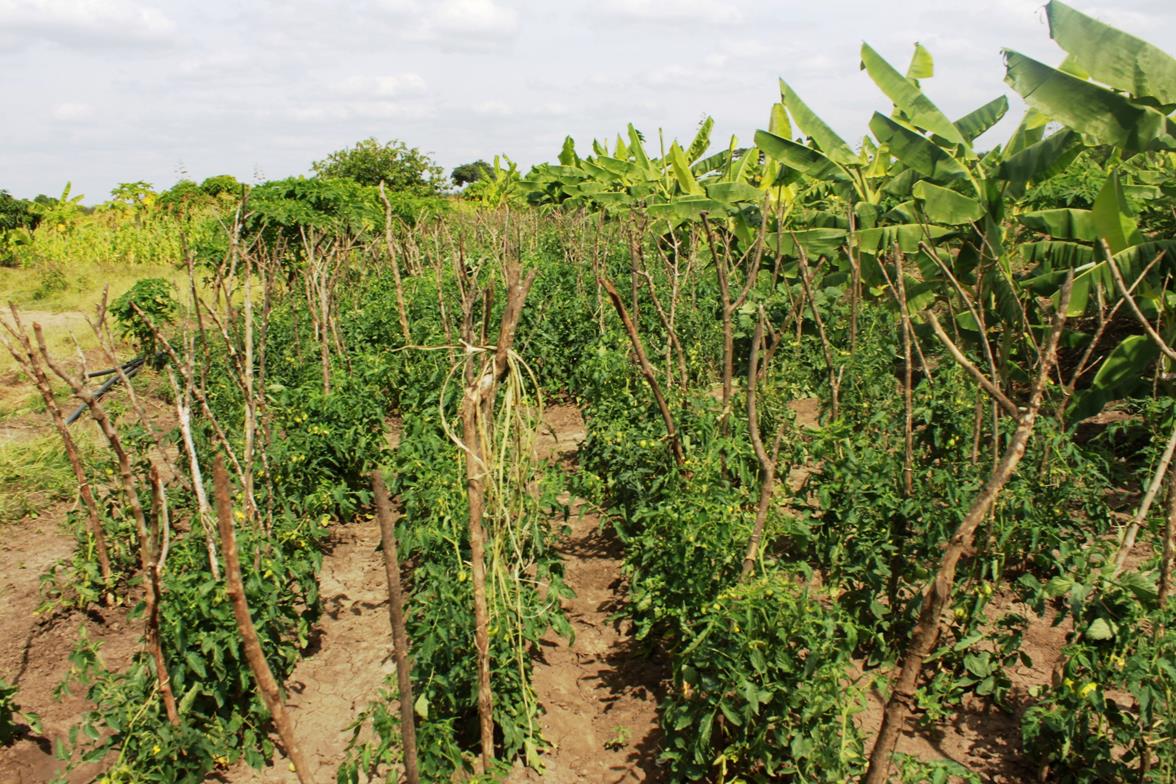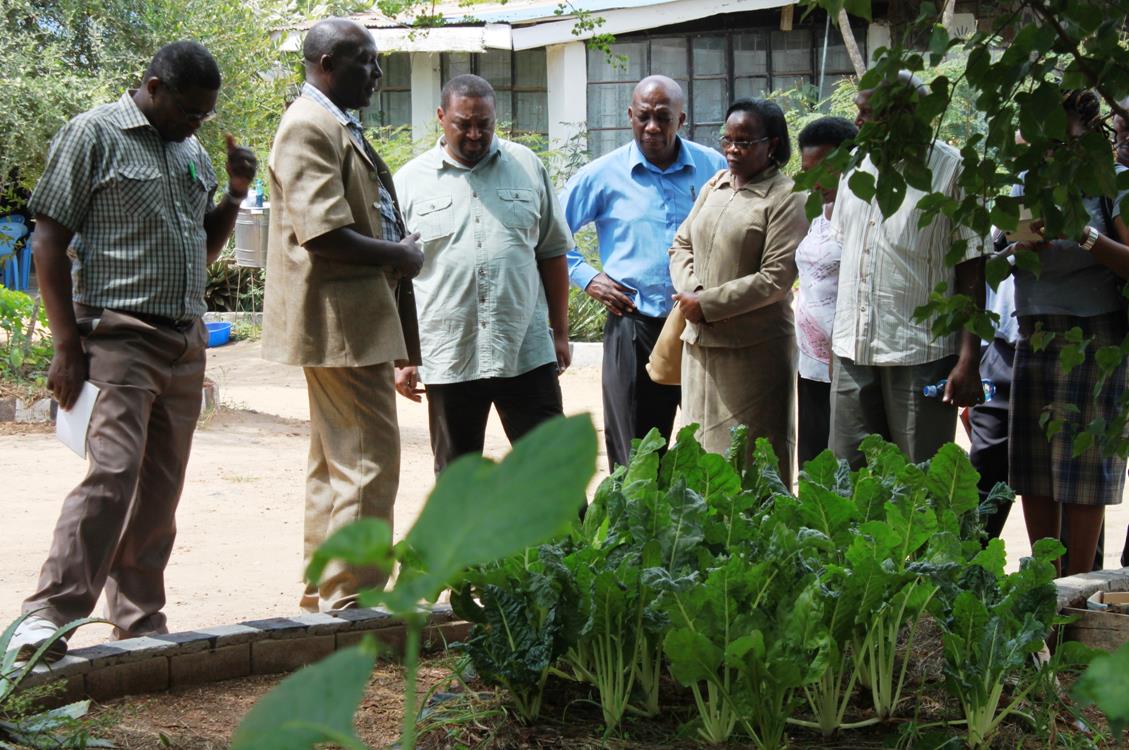NCCK,Christian Impact Mission to Sign MOU on the Use of the Bible as a Basis for Holistic Transformation.

For many, perhaps the mention of the name ‘Yatta’ evokes disturbing memories of 2009, when the area made headlines due to prolonged drought that left hundreds of villagers grasping at straws. Images of emaciated women and children carrying empty rusty bowls bigger than the size of some of them, would be beamed by the media across the globe, to capture the attention of the world and attract food donations from well wishers.
In fact when that help was not forthcoming, some of the villagers resorted to feasting on dogs, at least to escape the cruel hand of death, literally. Thousands of desperate families could no longer afford a meal for weeks, hence a dog, was a godsend meal if not a delicacy. The region became the epitome of Kenya’s untold human devastation, a complete irony of what the country had long championed for over the decades-food security.
But the epoch making events is what would later make Yatta a classic example of how a region, synonymous with poor soils and harsh climatic weather condition, can be transformed not only to provide enough food for residents, but also become an economic venture for many.
Today, a first time visitor, would be forgiven for thinking Yatta is somewhere near the slopes of Mt. Kenya or the country’s bread basket of the Rift-Valley, which enjoys sufficient rainfall for agriculture annualy. Success stories of how a community that hitherto desperately depended on ‘Molyo’ –lose translation of food donations in local dialect- are replicated in Kinyaata village, with locals relishing the gains of their farming, thanks to Operation Molyo Out -relief food out- concept. Magnificent permanent houses that stand out in many homesteads, is also a clear testimony that the ‘wind of millionaires’ is slowly but steadily blowing across Yatta plateau.
The once shrubby and rocky area is no longer relying on rain-fed agriculture, but is covered with lush vegetation comprising food crops such as maize, both Irish and sweet potatoes, as well as succulent fruits like pawpaws, mangoes and oranges.

With the nearest river being 25 kilometers away, the farmers are able to engage in high-level farming through irrigation, using water that is harvested during the 2 seasons of minimal rainfall in Ukambani. The villagers channel the rain water to their various dams-a prerequisite for any young man intending to marry- that dot every homestead.
Using various irrigation methods, the experienced farmers of Yatta use the dams- Silanga- ensure that their crops get enough water to reach maturity. “Everyone here must have a silanga to survive the harsh realities of mother nature. With a silanga, you are guaranteed that you can grow any type of crop here,” said one of the locals.
Other crops grown in the area include bullet pepper, water melons, pumpkins onions and garlic. “From this half acre, I made about Ksh.650 thousands after selling my bullet pepper and onions during the last season,” said one of the farmers, Justus Muthoka.

Other than growing food crops, some of the farmers also rear domestic animals such as cows, pigs, goats and poultry, which supplement their income.
When the National Council of Churches of Kenya (NCCK) team led by General Secretary Reverend Canon Peter Karanja and Honorary Treasurer Mr Kibby Kareithi, visited Christian Impact Mission centre in the region, the man behind the concept Bishop Titus Masika was busy training a group from Tanzania, on change of mindset. “Africa is not poor, only mindsets. Changing the mindset is what OMO is all about. Bringing development to Yatta needed a change of mindset,” he said when he took the NCCK team through the concept.
Bishop Masika extolled the achievements of the program in the area adding that change of mindset was the only way humans can overcome dependency syndrome.“People are unable to harness opportunities around them because of the mbokisi (boxes). You can today see that Yatta is transformed,” said Bishop Masika.
On his part Canon Karanja said that the project was in line with the Church’s vision 2060, that will make it an engine of community transformation. “Church leaders must domesticate this philosophy in their own denominations. There is a lot of hope for this economic empowerment possibility, we fully support it,” said Canon Karanja.
The NCCK continues to engage communities through Jumuia Business Serrvices, which is a special purpose vehicle for economic empowerment, with a view of benefiting and ensuring food secure households.
Canon Karanja revealed that the Council will soon sign a memorandum of understanding with Christian Impact Mission, on the use of the bible as a basis for holistic transformation of communities across the nation. “The church must seriously engage in education, health and understand how the finance world works. A few years ago, NCCK incorporated Jumuia Business Services which is our special purpose vehicle to engage communities. The ethos are in complete sync with what you are doing,” said Canon Karanja during the field visit.
On his part, Mr. Kareithi suggested that a deliberate effort is made to identify champions across the country. “It is incredible for us to finally meet like this. When we look at the problems that were facing the country 5 years ago, it is clear that Kenya is reawakening now. If we could identify champions to mimic what you have done here at a more faster rate, the better,” he said. He regretted that a lot of resources across the country had not been utilized well.
The NCCK team included Senior Programs Officers Grace Muthungu and Joseph Ng’etich as well as, Monitoring and Evaluation Officer Alice Mtile.
Mtile pointed out that the project had introduced a different discourse in development. “Just like Robert Chamber put’s it in his book (whose reality counts), I have seen development is a reality. When a community is empowered, they are able to take up the role of development,” she concluded. Her sentiments were echoed by Muthungu who agreed that the project can be replicated and tried with different communities. Ng’etich termed the visit as not only timely but also informative. “This visit was quite timely and it informs my personal engagement in the agricultural sector. I am sure it will also transform communities staff and communities that we serve, said Ng’etich who heads NCCK’s Governance and Social Services docket.

The team later toured Bishop Masika’s demonstration farm where they learnt more on modern farming technologies and animal husbandry. By the time the NCCK team left CIM, everyone agreed that to the locals, Yatta, is truly the modern day biblical promised land, where milk and honey flow in abundance.



